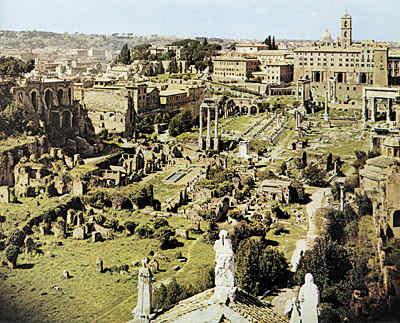Only a small fraction of the Roman legions consisted of Italians, Celto-Iberians (Spaniards), Greeks, Macedonians, or other peoples who were generally loyal to the empire; most Roman legionaries were recruited in the area where they were stationed which sometimes caused local Roman troops to join their own people's rebellion, to counter this the Romans later repositioned this legions to other areas to which they had no connection.
Especially warlike peoples with a high population supplied the Romans with soldiers, which resulted in a high amount of Germanic and Celtic legionaries in the Roman army, and it is no surprise what side those soldiers chose during the Germanic invasions.


 The Roman empire also caused this kind of powershifts, in the early Bronze Age Europe was dominated by the Celts and the dominant areas of Europe were southern Germany and Gaul while Rome was still a rather unimportant city, when Rome grew in power it soon dominated the Italian peninsula and after the Punic wars Rome began to expand its power around the Mediterranian and southern Europe, at the same time two other powerful factions began to expand their power; the Dacians in the east and the Germans in the north.
The Roman empire also caused this kind of powershifts, in the early Bronze Age Europe was dominated by the Celts and the dominant areas of Europe were southern Germany and Gaul while Rome was still a rather unimportant city, when Rome grew in power it soon dominated the Italian peninsula and after the Punic wars Rome began to expand its power around the Mediterranian and southern Europe, at the same time two other powerful factions began to expand their power; the Dacians in the east and the Germans in the north.